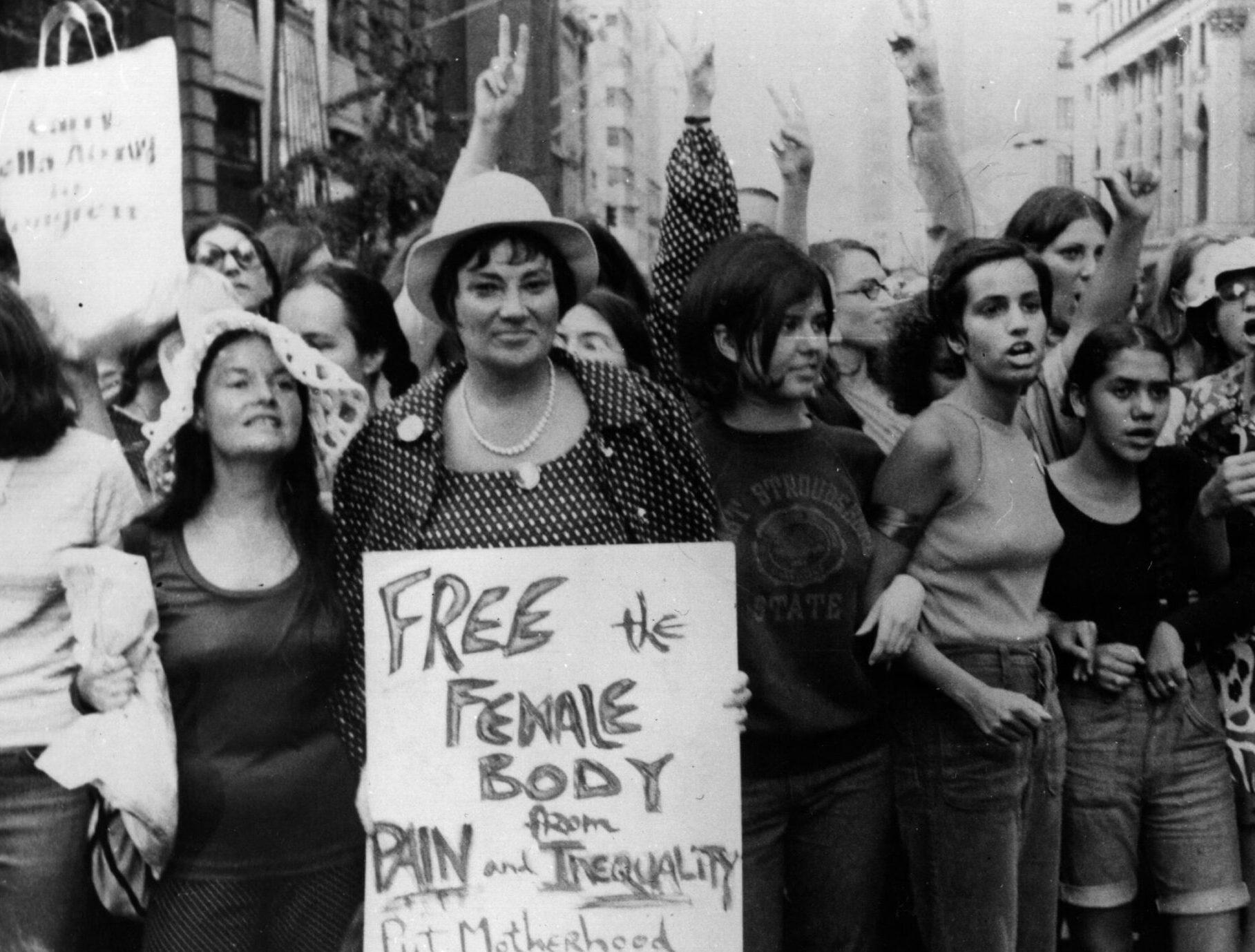Conservatives have consistently railed against feminism and vigorously opposed many feminist programs and pieces of legislation, although often with something less than unanimity. Reagan’s “big tent” covered a multitude of viewpoints, including such important and divisive issues as abortion. But notwithstanding the clamor, many conservatives most likely still underestimate or misunderstand the magnitude of feminism’s claims and impact on our society and culture. To be blunt, feminism ranks as the most radical and potentially corrosive movement of our time—one that, not unlike a virulent computer virus, is steadily erasing all of our accumulated thoughts and knowledge.
From the start, the movement for women’s rights, which since the late nineteenth century has been known as feminism, has ranked as a radical ideology, primarily because successive drives for the “liberation” of women have aimed to dismantle fundamental social, political, and religious institutions. Feminism has consistently sought a social, cultural, and political transformation that would free women from the control of men and establish them as men’s equals. These campaigns differ significantly from mere defenses of women’s excellence, which have surfaced in most Western societies throughout history, sometimes in association with attacks on men’s abuse of their authority—their patriarchalism—but invariably without offering a serious challenge to the social order. The modern campaigns for women’s rights emerged in tandem with the rise of modern individualism in mainstream thought and politics, and they have consistently focused on winning for women the same rights as individuals that the men of the English, American, and French Revolutions were claiming for themselves. Increasingly, however, proponents of women’s rights focused upon freeing women from any form of domination by men and ensuring women’s equality with men.
The emergence of socialism, abolitionism, and various other movements for social, political, and religious reform only accelerated the process. Many early feminists nurtured modest enough goals: securing a married woman’s right to hold property in her own name, a woman’s right to divorce an abusive or deserting husband, or a mother’s right to custody of her children in the case of divorce. Some sought improvements in pay and working conditions, some even sought women’s suffrage, and many campaigned for temperance. Others, however, including some of the most accomplished leaders, developed a far more radical vision. Thus, Elizabeth Cady Stanton launched a sweeping attack on Christianity and the Bible that would delight the most radical of contemporary feminist theologians.
In elevating the liberation of women to the most important measure of social, economic, and political justice, feminism has mightily contributed to the decomposition of the social fabric.
During the first half of the twentieth century, as women throughout Western Europe and the United States gained the vote and a variety of other rights and protections, feminism remained largely dormant, although social and economic changes were beginning to erode the institutions, notably families and churches, that had circumscribed women’s freedom. But when beginning in the 1960s feminism began to revive, it rode the crest of a dual sexual and economic revolution that secured the realization of even the most extreme feminist demands. As if with a snap of the fingers, feminists secured the legalization of abortion on demand, the widespread distribution of artificial contraception (notably the pill), the social acceptability of premarital sex (at ever younger ages) and single motherhood, and no-fault divorce. Together with affirmative action programs intended to “equalize” the opportunities—and, increasingly, the attainments—of women and men, women’s sexual liberation was expected to free women from the domination of men.
Success came rapidly and dramatically. By the early 1990s, women had moved from earning the notorious fifty-nine cents on the male dollar to virtually equal pay (and occasionally a bit more) for equal work. When women did earn less than men, it was invariably because of their commitments to family, especially children. Not content with this record, feminists raged that schools treated girls unfairly, fostering their insecurities and encouraging them to continue to behave like girls. Equality demanded that women’s sports receive equal funding with those of men—or that the better-funded men’s programs be abolished. Equality demanded that women receive identical access to all branches of the military, from the service academies to armed combat. Equality demanded that men be harshly punished for “acquaintance” rape and all forms of behavior that might be labeled as harassment. Sensitivity training programs proliferated in the public and private sectors and in schools and colleges.
What feminists are reluctant to recognize is that this vast effort at social engineering has worked—at least up to a point. Girls have come to out-perform boys in school and women to outnumber men on college campuses, and women are beginning to equal men in graduate and professional programs. Women who commit themselves singlemindedly to careers are as likely to succeed in them, and as fully, as men. But if feminists are loathe to acknowledge the magnitude of their success, they are even more loathe to acknowledge the havoc they have caused in American society and, increasingly, throughout the world. Their campaign for women’s sexual liberation has mushroomed into a full-scale assault on the sanctity of human life, a discrediting of marriage as a covenanted heterosexual institution, a scandalous repudiation of children as the proper objects of adult attention and sacrifice, and a repudiation of the ideals of military heroism and service.
In elevating the liberation of women to the most important measure of social, economic, and political justice, feminism has mightily contributed to the decomposition of the social fabric into a congeries of atomistic individuals without ties or responsibilities to any other. As noted by Pope John Paul II, among others who are often viewed as conservatives, we cannot go back. Feminism would never have attained the success it has, had not women throughout the world suffered centuries of disadvantage, injustice, and sometimes abuse. Nor, as conservatives should note, could feminism have succeeded without the economic transformations, notably globalization, which feed upon footloose employees, drawing both men and women away from the binding ties of marriage and family life. Feminism has fed upon a widespread sense that women deserve greater independence, opportunities, and respect, and it has profited from economic change, but in its unending quest for “freedom from” it has lost sight of “freedom for,” and its ultimately nihilistic vision has decisively influenced our culture and society.
Further Reading
Elizabeth Fox-Genovese, Stanley Grenz, Mary Steewart van Leeuwen, and Mardi Keyes, Women and the Future of the Family
This entry was originally published in American Conservatism: An Encyclopedia, p. 306.















